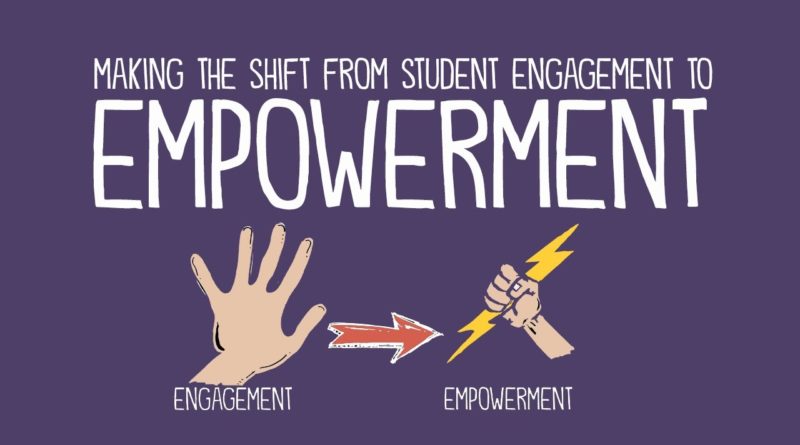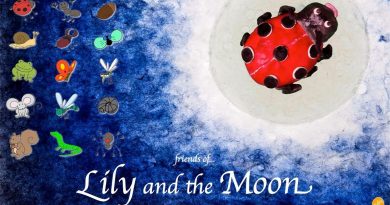The Shift from Engaging Students to Empowering Learners.
The Shift from Engaging Students to Empowering Learners.
Source: https://www.youtube.com/results?search_query=jhon+spencer+empower
The concept of “empowerment” has to do with providing children the possibility to take some decisions about learning, rather than the teacher acting as “controller”. Certainly, there are some approaches and methodologies that seem to assume learners´ empowerment as distinguishing aims.
According to John Spencer, “It’s the idea of creating an environment where students want to learn rather than have to learn”, and this means slipping from engagement to empowerment. This driving force, willingness or impetus to initiate a foreign language learning is nothing but motivation.
As experienced FL teachers know, motivation is, without question, the most complex and challenging issue facing teachers today. In our particular context, motivation can be defined as a positive feeling which promotes willingness to participate actively in the class, take the risk to assume challenges and put different strategies into practise. This positive acceptance of the FL contributes to develop the learners’ self-confidence; and hence to their success. In other words, motivation leads to success, and success promotes motivation. Given this, the FL teacher is in charge of the hard task to instill interest and positive attitudes into learners; considering that the best way to approach this challenge goes through the knowledge of the learners´ preferences and interests.
In this light, we know that songs and games are invaluable resources to stir learners up, getting them to practise with the FL in a “hidden way”. Apart from being intrinsically motivating, games are a source of “authentic” contexts, because children need to use the FL with a purpose embedded in the game itself. This “hidden practice” is actually one of the greatest advantages of using games, as children are engaged naturally in them, whether they deal with any of the four skills and require an effort on the part of the students. Besides, playful activities add variety to the range of learning situations, they “lighten” more formal teaching and can help to renew pupils´ energy, and they help create a fun atmosphere.
Having in mind the previous considerations, in what follows we suggest a practical proposal of activities to enhance the learners’ motivation.
Who we are: Oral presentation in groups. Children practise how to introduce themselves as members of their team. Their presentation is recorded and uploaded to the FL blog and the eTwinning space. Through this product children “meet” their partners from other countries. Oral presentations to give basic personal information (i.e. name, age, family, likes). Sociocultural knowledge: formal introductions. Communicative functions: greetings, introductions, preferences.
Skype conversation. Once they know a little about their new friends, it is time to greet and maintain brief conversations in groups according to previously rehearsed scrips and patterns. Oral conversation. Simple questions and answers to know about the other children (i.e. do you like…? who is your favourite…?) Affirmative, negative and interrogative sentences in simple present. Expressing opinions. Hobbies, personal interests.
More about us. Writing an email (group writing). Description of daily routines, school-life, spare-time activities. Through this task children learn how to write an informal email to give information. Descriptive syntactic patterns. Writing about routines, the school, favourite subjects. Reporting back the email received by the eTwinning partners.
Got Talent! Christmas carols contest. In this product students have the chance to change the lyrics of a carol for Christmas greetings. In groups they record their versions and listen to the ones by their partners. Christmas time, traditions and celebrations. Construction of sentences following simple patterns. Sociocultural aspects related to Christmas. The Anglo-Saxon tradition. Christmas time, traditions and celebrations. Construction of sentences following simple patterns. Sociocultural aspects related to Christmas. The Anglo-Saxon tradition.
MasterChef. Recording studio. Children explain typical recipes in the region. The task is carried out with the help of parents who act as cooks whilst children describe the cooking steps and nutritional benefits. Food, healthy habits, recipes, ingredients, cooking verbs, ordering a sequence (i.e. first, next…), lexis related to properties of food, nutritional categories.
Planning the future. Skype conversation. Questions and answers about future plans. Children keep a conversation in groups monitored by the teacher. They make and answer questions with their eTwinning partners and about current summer activities description.
In The flash-hats “game, each student is equipped with a cardboard hat with a flashcard on top of it; and students are challenged to guess the card on their hats by making basic questions to their classmates (i.e. is it an animal? is it big? etc.) Once a student has guessed the card, he/she can keep it and the teacher places a new card on the hat. This simple communicative game requires children to make use of their language knowledge and skills to negotiate meaning by making questions, asking for clarification and explaining.
In “Fruit salad”, with children in a circle, each child is assigned one or two different names; then, when the teacher calls out their names i.e. pineapples! all children who have been assigned that word have to change sits
“Consequences” is a writing game in which students in groups write a story following a pattern. Each group writes a sentence and then passes the paper for another group to write their sentence. Finally, the paper is unfolded and each group reports to the rest of the class.
As we have seen, there is a wide variety of games and playful activities covering the four skills. Due to their intrinsic motivating power, games should be regarded as an integral part of the syllabus; and as essential strategy for teacher to cope with lack of motivation. If we use games to practise the foreign language, we are taking advantage of children´s developmental stage, their curiosity and creativity, and the powerful fact that games and playing are in the essential nature of children. In other words, the procedure of the game and the final goal act as motivating and engaging factor, whilst the linguistic and communicative factors turn into “hidden practice”.
Video by John Spencer.
More information about us:
facebook.com/OposicionesInglesRP/
Twitter: @OposIngles
https://twitter.com/OposIngles
Instagram: https://www.instagram.com/oposiciones_ingles




